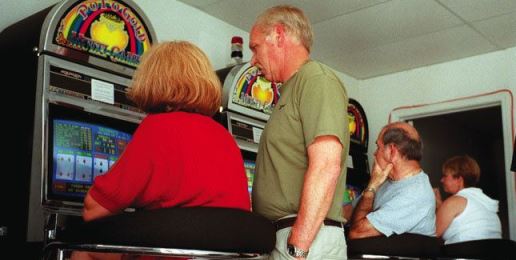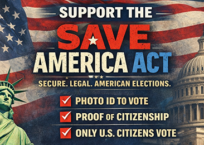
Video gambling out of control, says one lawmaker
Written by Patrick Yeagle
You can find them in gas stations, golf courses, restaurants, liquor stores and even a TV repair shop. More than 19,000 video gambling machines had spread across the state by the end of 2014, turning thousands of businesses and other establishments into what one lawmaker calls “mini casinos.” Now, he’s trying to curb the trend.
State Senator Darin LaHood, R-Dunlap, wants to place new limits on which establishments can have video gambling machines in Illinois. Although existing gambling parlors would initially be grandfathered in, his bill would likely eliminate many of them when it comes time to renew their licenses.
Illinois legalized video gambling machines in 2009, and the first regulated machines began operating in 2012. Prior to that, such machines were only legal if there was no payout, meaning many establishments would simply pay out under the table.
Although he’s not opposed to video gambling in general, LaHood says the proliferation of machines goes beyond what the legislature intended.
“I wasn’t here in 2009 when the original law was passed, but my understanding was that it was to specifically help bars and restaurants,” LaHood said. “Fast forward to floral shops, liquor stores, laundromats; I don’t think anybody anticipated that you’d have the proliferation of video gambling machines in all these places outside bars and restaurants.”
On average during 2014, the Illinois Gaming Board approved 134 new establishments for video gambling machines each month. At the end of last year, 4,675 establishments across the state had a total of 19,182 video gambling machines. Statewide, gamblers put more than $2.4 billion into the machines in 2014 and lost almost $659.5 million. For every dollar put into video gambling machines in Illinois during 2014, gamblers received about 73 cents back on average.
Springfield in particular is a hotspot for video gambling. The city’s downtown alone hosts 21 establishments with video gambling machines. Citywide, 150 establishments host the machines, at which gamblers spent more than $8 million in January 2015 alone. During the previous year, gamblers put more than $82 million into the machines in Springfield, netting the city almost $1.2 million in revenue. The amount of money lost by gamblers in Springfield during 2014 totaled more than $21.7 million. In January 2015 alone, Springfield gamblers lost more than $2.1 million to the machines.
In May 2014, the Springfield City Council approved an ordinance requiring that an establishment seeking video gambling machines show that at least 60 percent of their revenue comes from the sale of food or beverages. Existing video gaming establishments were grandfathered in, but new or renewing applicants will have to meet the threshold.
LaHood’s bill would require an establishment seeking a license for video gambling machines to show that 80 percent of revenues for the previous two years came from the sale of food or beverages. Applicants seeking a license renewal would have to show 50 percent of revenue came from food or drinks in the previous year.
Licensees would have to hide video gambling machines from the view of children and post signs indicating that no one under age 21 – the existing age limit – may use the machines. They would only be allowed to operate during an establishment’s normal business hours.
Henry Baird, owner of Pennies Place in Jerome, says he doesn’t see the problem with video gambling machines becoming common. His one-room parlor, nestled between his package shipping business and his TV repair shop, likely wouldn’t meet the revenue threshold under LaHood’s bill because the food and drinks he offers customers are free.
Baird sees video gambling as mere entertainment, and he says most of his customers come with a certain amount of money they expect to lose.
“Everyone has a vice,” he said. “Some people choose to spend their money drinking in a bar.”
Currently, problem gamblers can have themselves placed on a state list barring them from casinos, but the list doesn’t apply to video gambling machines. The same goes for the state list excluding people who ran illegal gambling operations, cheated at casinos or committed other acts barring them from casinos. Under LaHood’s bill, anyone on either list wouldn’t be allowed at a video gambling location.
Baird says he actually supports that provision.
“If someone is on one of those lists,” he said, “they probably shouldn’t be gambling.”
This article was originally posted at the IllinoisTimes.com website.






















